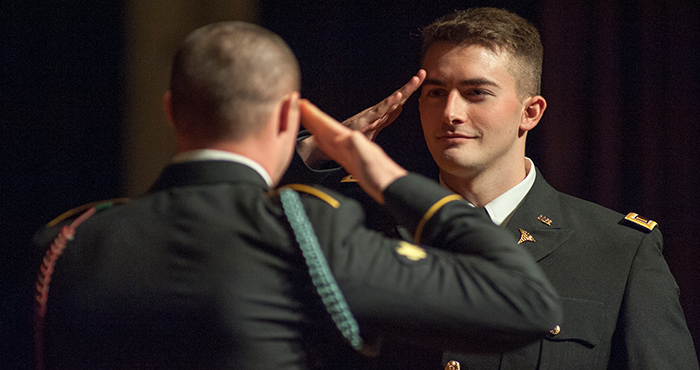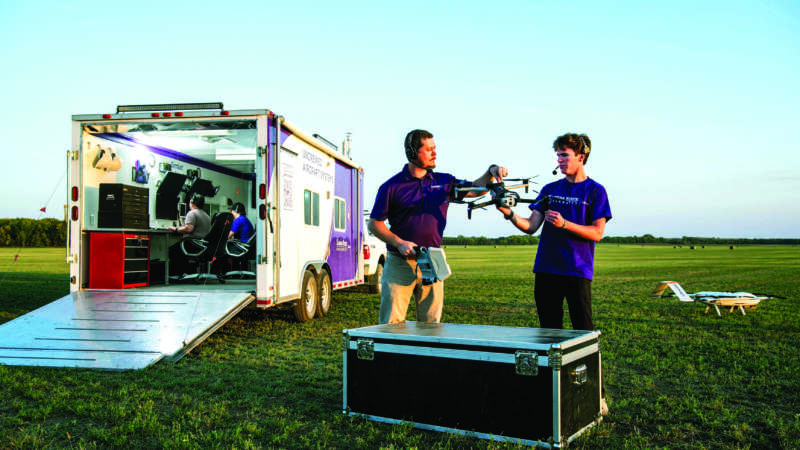K-State’s Security Studies program aims to become a landmark program in the security studies field.
Security studies is a vast, detailed field that has many specifics dealing with foreign and domestic issues. The security studies program at Kansas State University aims to provide students with the knowledge and opportunities to learn about the vast areas of study in this program. “Security studies, as it is practiced at K-State, involves a rigorous approach to the study of international security issues and global problems that are grounded in the disciplinary perspectives and methodologies of political science and history,” said David Graff, Richard A. and Greta Bauer Pickett Professor of Military History and chair of the history department. “Among the topics, we deal with are international relations, conflict avoidance, peacekeeping, nuclear nonproliferation, terrorism, migration and the influences of climate change, disease, and resources on international security.”
What makes security studies unique at K-State is that it is a cooperative effort between two different departments. “Security studies is a cooperative venture between the departments of history and political science,” Graff said. “That means the required coursework is offered by the two departments.” The faculty for the security studies program consists of professors from history and political science, as well.
Given that security studies deals with some military-related topics, the program has a very close relationship with all military branches, especially the Army. “An important aspect of our program, especially at the master’s level, is our relationship with the U.S. Army Command and General Staff College (CGSC) at Ft. Leavenworth,” Graff said. “More than a decade ago, we signed an agreement with CGSC that makes it possible for mid-career officers doing their one-year course of study there to complete our security studies master’s concurrently. The result is that about half of the students in our master’s-level classes are active-duty officers; mostly Army, but also some Navy and other services.”
The future is bright for students who aspire to be employed in the security studies field. “Our students, especially the civilians, are usually aiming for employment in analysis or planning roles in government agencies such as DHS, CIA, FBI, DIA, DEA, and Department of State,” Graff said. “Active-duty officers find the program valuable because it provides the broader strategic perspective that they need to function effectively when they are promoted to higher-level staff positions.”
“One of our master’s program graduates has provided a glowing testimony of how his education with us gave him the skills and perspective he needed to work effectively with coalition partners and local politicians in Afghanistan, for example,” Graff said. “The students in our Ph.D. program are most often interested in teaching positions at institutions such as the CGSC, the Air War College, and Army War College.”
Resources for the security studies program are provided in kind from the parent departments of history and political science. To learn more about the security studies program visit: k-state.edu/securitystudies/






